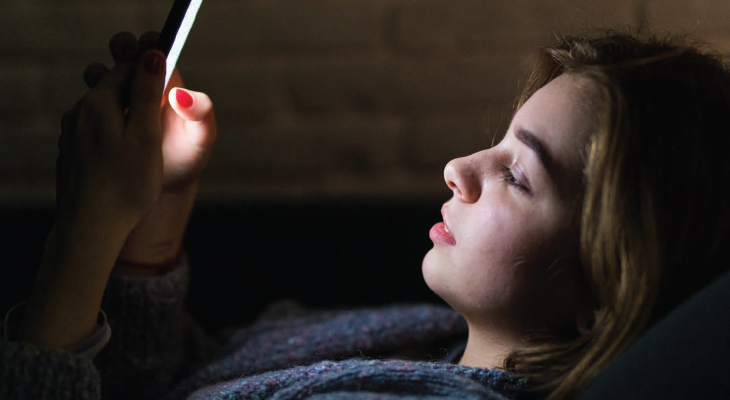
Social Media & Mental Health
Man is a social creature. We need to be connected with others for our very existence. The quality of our social connections have a direct impact on our mental health and happiness. Having a healthy social life can ease stress, anxiety, and depression, boost self-worth, provide comfort and joy, prevent loneliness, and even add years to our life. On the flip side, lacking strong social connections can pose a serious risk to our mental and emotional health.
As social media has become a part and parcel of our life, most of us rely on different social media platforms for socializing and to stay connected. Each platform is designed to address some specific needs and fulfillments. All of them are good and effective on their own terms. However, we must remember that social media interactions can never replace the real socialization that we need in our life. In order to get the benefits and to feel the positivity of socializing we need to have real face to face interactions. That would only release the hormones required to fight stress and loneliness. On the other hand, studies reveal that excessive online indulgence, especially on the online social media platforms causes increased levels of stress, depression, anxiety, sadness and frustration.
Psychiatric studies on the effect of online social media on the mental health of the users reveals that social media has positive and negative impact on the mental health of the users. Most of these studies are not conclusive but indicative. Lot of subjectivity elements are to be considered while we look at the findings of these studies. However, multiple studies point at the same type of effects of social media on mental health.
Let’s consider the positive and negative impacts of social media on mental health in a little detail.
On the positive side, online social media platforms help us stay connected. It helps to be in touch with friends and families from any part of the world. Finding new friends and being part of groups of shared common interests is easier on social media. Social media serves as an outlet for our emotions and self expressions. On social media, people express their thoughts and emotions on different topics without hesitation. Basically, social media platforms serve the purpose, it is made for.
On the other hand, social media certainly has some negative impact on mental health. Multiple studies have found a strong link between heavy social media and an increased risk for depression, anxiety, loneliness, self-harm, and even suicidal thoughts. Let’s discuss some of them.
The feeling of ‘not enough’- Online social media is full of ‘the best of one’s life’. The photos, videos, text and any form of content one shares are always the good things in their life, that too in a much polished and made good manner. However it is a known fact for anyone viewing this content, tht creates a ‘my life is not so happening feel’ in others. This envy and dissatisfaction causes mental agony.
FOMO (Fear of missing out)- Contents on the happening life of others creates a fear of missing out in others primarily triggered with a thought that I could not achieve or live a life others are living. This affects self esteem very badly, triggering anxiety, and fueling even greater social media use. FOMO can compel you to pick up your phone every few minutes to check for updates, or compulsively respond to each and every alert-even if that means taking risks of using your phone while you’re driving, missing out on sleep at night, or prioritizing social media interaction over real world relationships.
Ideally, social media usage must reduce loneliness. Contrary to that, studies reveal that excessive usage of social media increases loneliness and isolation. Reducing social media usage will help improve your overall wellbeing.
Studies show that aboutat least 10% of the teenages in the social media platforms are victims of cyberbullying and offensive comments. Needless to mention that such aggressive attacks will leave lasting effects on mental health
People find themselves self absorbed into social media. Posting endless selfies creates an unhealthy self centeredness and moves them further away from the fun and pain of the real world.
Most of us use social media through our smartphones. Its easy and very convenient. That a world waiting at the end of two to three touches. This easiness of hyperconnectivity triggers impulsive behaviour. Over and above this, our phones are constantly alerting us on every activity that is in our social media accounts. Inviting us to spend the entire day and night with the blue light of the screen lighting up our face. This is how these companies engage us more and more in their world. But like in alcohol or gambling addiction, social media usage creates psychological carving to get more and spend more on it, over and over again. For many of us, social media is a bunker to hide our head whenever we feel anxious, awkward, or lonely. Never do we realise that such escapes deprive ourselves of the real social interactions that would have happened
If you spend more time on social media than spending with your friends and family,
if you are comparing yourself with others in social media,
if you are experiencing cyberbullying or feel that you have no control over what others write about you, if you are distracted at school or work and have a pressure to post something or oth all that time, if you find yourself too busy on phone and do not do any sort of self reflection on what you are, how you have been doing,
if you have sleep problems and checking social media is that last thing you do before falling into sleep and the first thing as you wake up in the morning
That indicates that social media has affected your mental health in a very bad way.
Is there a solution? If yes, what is that? The only solution is to be cautious about our social media life and make changes to improve our behaviour. Lets mind the following to have a healthy social media experience
1. Steps to reduce use
- Reduce time online. Studies reveal that even a reduction of 30 minutes in the time spent online has surprising results on mental health.
- Track the time spent on social media. There are many apps for this purpose. As you start measuring the time spent. we will start reducing the time spent.
- Turn the phone off when you are with friends or family, turn the social media notifications off. Don’t bring your phone to the bedroom.
- Reduce social media checks. If you have the habit of checking your phone every few minutes, extend that to 15 minutes or 30 minutes.
- Remove social media apps from your phone. Usee it only on your tab or computer. This is a drastic but effective step to control social media use.
2. Have a purpose
- Many of us log in to our social media account without any purpose and end up hanging out here and there spending hours together. At the end we realise that we have not done anything worthwhile. Let’s have a purpose when we visit our social media world. Make sure that you get out of that one the purpose is met. Be an active social media user. Use it with a motive not to just be there, wandering around and wasting our precious time.
3. Spend more time in the real world
- Fill your life with more and more real social interactions of family and friends. play some real games together, not online games. Join a club or an organisation with any sort of social or cultural vision, engage yourself in activities that fulfil your ideas of giving back to the society. Lets have more and more face to face interactions. Social awkwardness is just a starting problem. The more you push yourself against the sense of feeling odd, you will feel it is easier, better and rewarding.
- In addition to all these, make sure that you take time to reflect, invest time in health and wellbeing. Social media is good when we use it. When it starts using us, it will ruin us like a slow poison.
Leave a Comment
Success!
Your comment has been successfully posted..!




Comments